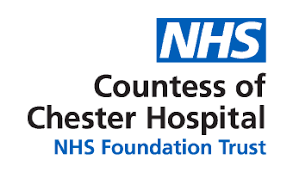Useful Links / support service
HEE NW
Cheshire and Merseyside Resilience Hub
The Cheshire and Merseyside Resilience Hub is here to ensure all NHS, Social Care and Emergency Service staff within the region have access to the right support, information and confidential psychological interventions they need through the COVID-19 pandemic and beyond. Feel free to browse our collection of resources to find what you need, from self-help to psychological help to training for your organisation.
Understanding Moral Injury (10 mins): https://youtu.be/AybMPLVbtvg
Handling Moral Injury (10 mins): https://youtu.be/7XXJzTy51LM
Reclaiming space for connection (7 mins): https://youtu.be/xTg4Pr35c5o
Coronavirus Staff Resilience hub: Home | MindEd Resilience Hub
GMC article: When does the regulator get involved in a doctor's mental health?
For immediate help
> The British Medical Association offers a dedicated 24-hour confidential support line: 0330 123 1245.
> The NHS Practitioner Health Programme has a 24-hour crisis support line: text PHP to 85258.
> The Samaritans are there to listen with a 24/7 free telephone helpline: call 116 123 for free or email jo@samaritans.org (24-hour response)
> Type the words Hub of Hope as a search term on your smartphone with location services turned on, and links to the nearest counselling facilities will automatically pop up. This is very useful if you are looking for immediate local support. The database also includes links to immediate walk-in centres for individuals at risk of suicide.
Connecting with People
Useful resources
> StayingSafe.net is aimed at those who may be having suicidal thoughts and includes helpful videos, sources of immediate 24/7 support and an online safety plan.
> Doctors in Distress includes a wealth of useful resources and signposts.
> This webpage on Mental health helplines .
First steps
> If you have yet to do so or have recently moved house, it is important to register with a GP.
> You can access occupational health services through your local trust or health board.
Every mind matters is a Public Health England website (in partnership with the NHS) to help you to take simple steps to look after your mental health, improve your mental wellbeing and support others.
How to access NHS mental health services
BMA Wellbeing support offers signposting to national and local support, including:
> help for doctors under investigation (not restricted to GMC or BMA members)
> free independent confidential and educational peer support
> a directory of support services
NHS Practitioner Health Programme offers a confidential advice line on 0203 049 4504 on Monday–Friday 8am–8pm, Saturday 7.30am–2.30pm.
There is also a 24-hour crisis support line: text PHP to 85258.
Other organisations that can help
Doc Health is a self-referral psycho therapeutic counselling service (6 face-to-face sessions) based at BMA House.
The Sick Doctors Trust is run by doctors who have had addiction issues and offers peer support and sign posting. It is part of Royal Medical Benevolent Fund. Contact the 24/7 confidential helpline on 0370 444 5163 or email help@sick-doctors-trust.co.uk
> The Royal Medical Benevolent Fund also provides financial advice and support.
> The Medical Protection Society provides counselling for members dealing with complaints / GMC investigations
> The Medical Defence Union provides counselling for members dealing with complaints / GMC investigations.
> British Doctors and Dentist Group is a self-help group for those recovering from addiction, meetings throughout UK but mainly in cities.
> Doctors Support Network is a peer support network for doctors with mental health concerns offering an online, confidential, anonymous support forum but no individual support.
General support services (not specific to doctors)
MIND
Mental health charity with a confidential telephone helpline (0300 123 3393) or text 86463. Available Monday–Friday, 9am–6pm.
SANE
Offer a confidential telephone helpline (0300 304 7000), available 4.30pm–10.30pm.
Provides practical support and peer support groups. Has a confidential advice line (0300 500 0927) available Monday–Friday, 9.30am–4pm or email advice@rethink.org
Self-help groups for people with anxiety disorders, run as evening CBT teleconference courses.
Alcoholics Anonymous
Support groups and free helpline advice (0800 9177 650) and email help@aamail.org
Support groups in person and online. Telephone helpline (0300 999 1212) available 10am–midnight.



